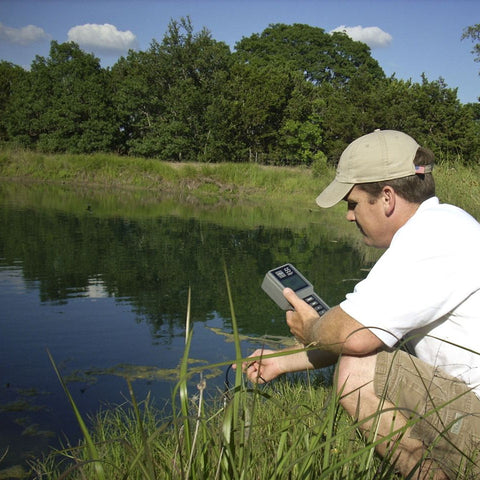Introduction to Pond Management
Pond management is an essential practice, crucial for maintaining ecological balance and fostering sustainable ecosystems. At Smith Creek Fish Farm, we recognize the profound impact of effective pond management on the environment and industries like aquaculture and recreation. This comprehensive guide delves into “How to maintain a pond,” the strategies and benefits of pond management, and addresses everything from water quality to wildlife habitat. Whether you're a seasoned pond owner or a newcomer, these insights will equip you with the knowledge to maintain a thriving pond ecosystem, enhancing its value and longevity.
Why is Pond Management So Important?
Pond management plays a pivotal role in environmental stewardship and ecosystem health. It's not just about maintaining a body of pond water; it's about nurturing a complex system supporting a diverse life range. Effective pond management ensures balanced aquatic ecosystems, preventing algae overgrowth and oxygen depletion, which can harm fish populations and overall pond health. Furthermore, well-managed ponds contribute significantly to local biodiversity, supporting various species, including amphibians, birds, and beneficial insects. From a practical standpoint, pond management is vital for activities like fishing, swimming, and irrigation. It ensures that ponds remain clean, healthy, and aesthetically pleasing, enhancing property value and providing enjoyment for all visiting. At Smith Creek Fish Farm, we emphasize the importance of proactive pond management to preserve these natural resources for future generations.
Benefits of a Well-Managed Pond

Food Production
A well-managed pond can be a sustainable source of table fare for food especially when you use fish food to increase quality and quantity of harvestable. Ponds and lakes offer a platform for growing aquatic plants and rearing fish, and this provides a healthy, locally sourced food option and contributes to food security.
Commercial Aquaculture
Ponds are integral to aquaculture, supporting the cultivation of fish and other aquatic organisms for commercial purposes. With effective management, these small ponds can yield high-quality produce and protein, contributing to the local economy and providing job opportunities.
Irrigation
Managed ponds serve as reservoirs for agricultural irrigation, supporting crop production, especially in arid regions. This consistent water source can significantly enhance farm productivity and sustainability.
Swimming and Recreation
Ponds create recreational spaces for activities like swimming, boating, and fishing, offering community gathering spots and enhancing the quality of life. Propper management will make aquatic activities safe for all.
Wildlife Habitat
They provide crucial habitats for various wildlife species, including waterfowl birds, amphibians, and beneficial insects, promoting biodiversity and ecological balance.
Livestock Production
Ponds can supply water for livestock, which is crucial for the sustainability of farming operations, especially in areas with seasonally limited water resources.
Fire Protection
In emergencies, ponds can be invaluable as a water source for firefighting, offering a readily available supply to combat wildfires while protecting communities and natural landscapes. Insurance discounts are often given to homwowners with fireponds.
8 Most Popular Techniques for Pond Management

Pond Construction
Effective pond management begins with proper pond construction. Key considerations include location, depth, drainage, and soil type. Ensuring a balance between shallow and deep areas can cater to different wildlife and submerged plants. Optimal design and construction lay the foundation for a healthy pond ecosystem.
Water Quality Management
Maintaining good water quality is crucial for a healthy pond. Regular testing of pH levels, oxygen content, and nutrient concentrations helps in the early detection of imbalances. Implementing aeration systems and pond-beneficial bacteria, like those offered by Smith Creek Fish Farm, can significantly improve water quality.
Stocking and Harvesting Strategies
Stocking the pond with appropriate fish species at proper ratios is vital for ecological balance. Different fish serve various purposes, from controlling pond algae to providing recreation. Careful harvesting ensures population control, preventing overpopulation and ensuring a healthy aquatic environment.
Weed and Algae Control
Weed and pond algae control or overgrowth can be detrimental to pond health. Utilizing pond weed control techniques, such as mechanical removal, biological control, and safe chemical treatments, helps maintain a clean and healthy pond.
Monitoring and Managing Fish Populations
Monitoring fish health and population dynamics is essential, including checking for signs of disease, monitoring growth rates, and adjusting stocking rates accordingly. Tools like fish feeders and habitat structures can also support fish population management.
Maintaining Fertility and Nutrient Balance
Fertility management involves regulating nutrient levels to prevent excessive algae growth. Strategies include using pond fertilizers judiciously and controlling runoff. A balanced nutrient level supports a vibrant ecosystem without encouraging harmful algae blooms.
Enhancement Strategies for Ecosystem Health
Enhancing pond biodiversity by introducing native plants and habitat structures benefits the ecosystem. These enhancements provide shelter for fish, improve water quality, and attract beneficial insects and wildlife.
Improving Aesthetics for Recreation
Lastly, enhancing the pond's aesthetics makes it more enjoyable for recreational activities, including landscaping, installing lighting for an evening ambiance, and creating comfortable access points for swimming, fishing, or simply enjoying the view.
Collectively, these techniques contribute to successful pond management, ensuring a healthy and enjoyable pond environment for wildlife and people.
Conclusion: The Future of Pond Management
As we advance into the future, pond management continues to evolve, integrating innovative techniques and technologies. The emphasis is shifting towards sustainable practices that balance ecological health with enjoyment and utility. By embracing these evolving practices, from advanced water quality management to eco-friendly enhancement strategies, pond owners can ensure their waterscapes remain vibrant, productive, and enjoyable for future generations. Smith Creek Fish Farm remains at the forefront of this evolution, offering expert guidance and solutions for all aspects of pond management.

